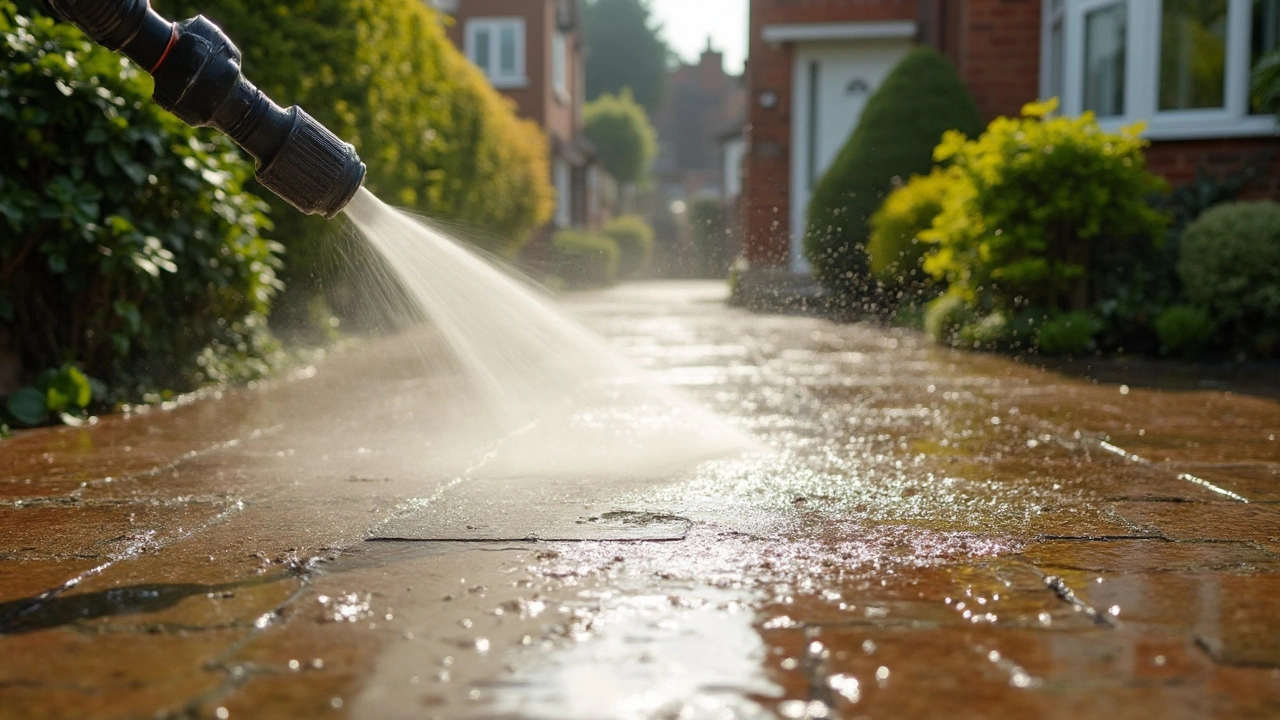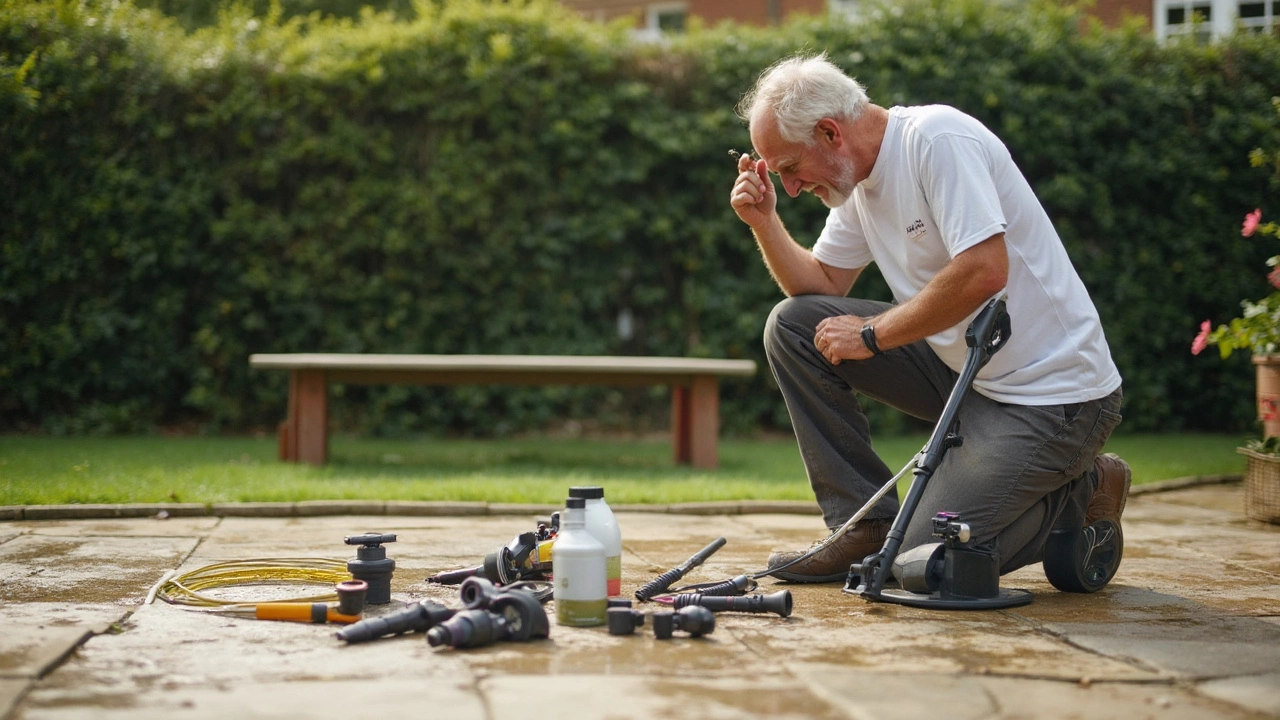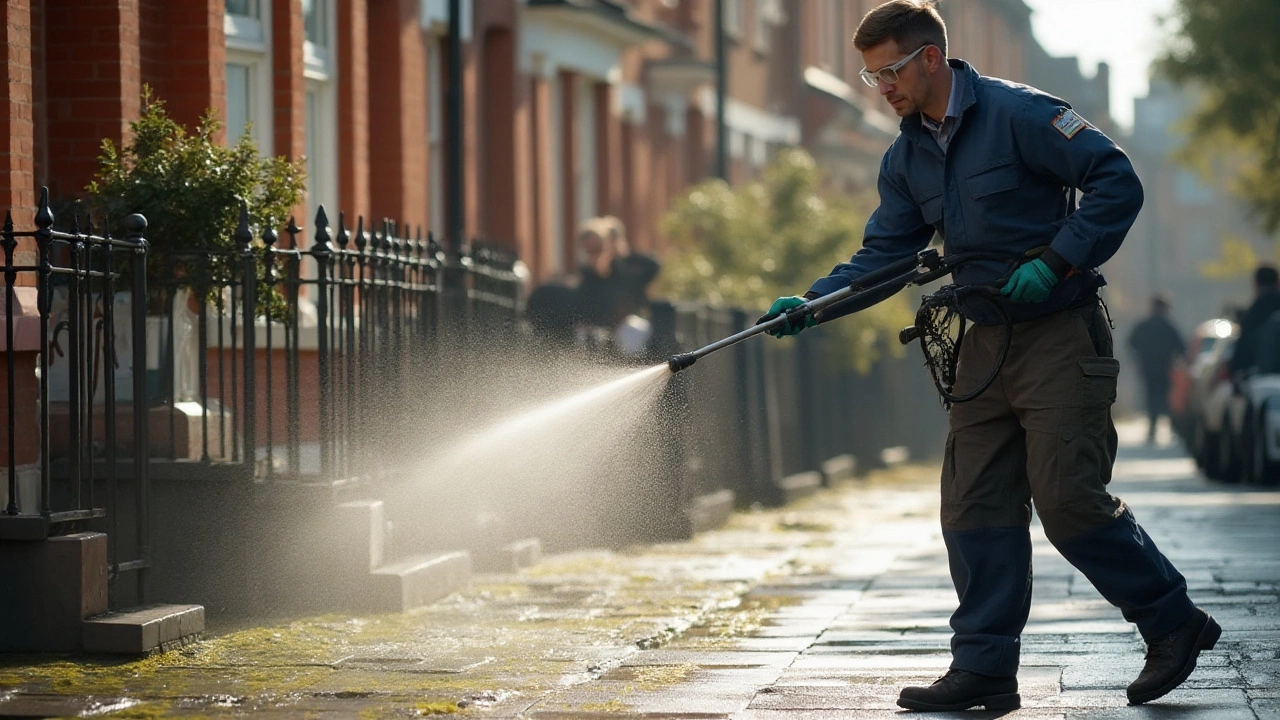Power Washer Guide: Everything You Need to Know
Thinking about a power washer for your home? You’re not alone. Homeowners love the fast, low‑effort finish a power washer gives to decks, walls, and driveways. Below you’ll find straight‑forward advice on choosing a machine, timing a job, and handling common worries like mold and safety.
How Long Does a Power Wash Take?
Most people wonder, "How long will it actually take to pressure wash a house?" The answer depends on size, surface type, and how dirty the area is. A typical three‑bedroom home with siding and gutters usually finishes in 2‑3 hours if you work at a steady pace. Smaller jobs, like a single patio, can be done in under 30 minutes.
Speed comes from a good nozzle, the right pressure (around 2,500–3,000 psi for most exterior walls), and keeping the spray at a consistent distance—about a foot away. Hold the wand steady and move in overlapping strokes. If you rush or spray too close, you’ll waste time fixing damage.
Can a Power Washer Remove Mold Effectively?
Yes, a power washer can knock mold off many surfaces, but it’s not a magic cure. Mold clings best to porous material like wood or stucco. High pressure combined with a cleaning solution (a mix of water and a mild detergent) loosens the growth and washes it away.
For tough spots, start with a low‑pressure rinse to wet the area, apply a commercial mold remover, let it sit for 10‑15 minutes, then finish with a higher‑pressure pass. Always wear protective gear—gloves, goggles, and a mask—because mold spores become airborne when disturbed.
If the mold has penetrated deep into wood, you may need to replace the affected boards. Power washing works best when you treat the surface quickly after a leak or flood before mold sets in.
Choosing the right machine matters. Homeowners typically use a 1,500–2,000 psi electric model for decks and patios. For a full‑house job, a gas‑powered 2,800–3,200 psi unit does the trick, but it also costs more to rent or buy. Compare rental prices in your area—many hardware stores charge around £40‑£60 per day for a professional‑grade washer.
Safety should never be an afterthought. Never point the spray at people, pets, or windows. High pressure can crack glass and force water into electrical outlets. Test a small area first and adjust the nozzle to the lowest setting that still cleans effectively.
Maintenance keeps your power washer ready for the next job. After each use, flush the pump with clean water, empty any detergent tanks, and store the machine dry. Check hoses for cracks and replace worn nozzles to avoid loss of pressure.
In short, a power washer saves time, delivers a fresh look, and can handle mold when used with the right approach. Whether you rent for a one‑off clean or buy for regular upkeep, follow these tips and you’ll get great results without costly mistakes.

How Much PSI Is Needed to Pressure Wash a Driveway?
Picking the right PSI for pressure washing a driveway can make or break your cleaning job. Too little power, and you won't get those oil stains out. Too much, and you can damage the concrete or pavers. This article breaks down exactly how much PSI you need and why it matters. Get tips on choosing the right pressure washer and how to get pro-level results at home.
Read More
Is 2000 PSI Enough to Clean a Concrete Slab? Real-World Pressure Washing Tips
Wondering if a 2000 PSI pressure washer can tackle your concrete slab? This article breaks down how much cleaning power you actually need, what 2000 PSI gets you in the real world, and smart ways to boost results. Learn about the right nozzle choices, how surface type changes the game, and tips for getting the most out of your equipment. If you want clean concrete without destroying your gear or your slab, this guide is for you.
Read More
Understanding the Role of a Pressure Washing Specialist
Pressure washing, commonly known as power washing, involves using high-pressure water spray to remove dirt, grime, mold, and loose paint from various surfaces. The skilled technicians who perform this task are often called pressure washers. This article delves into the specifics of what these professionals do, their importance in maintaining cleanliness and safety, and tips for hiring the right one. Discover why this job is vital in keeping your property in top shape.
Read More